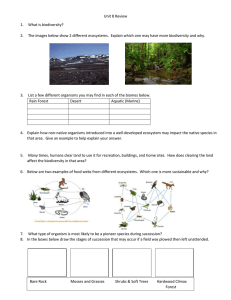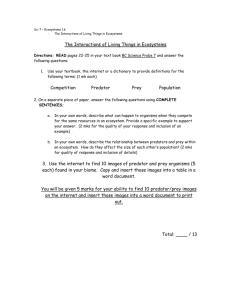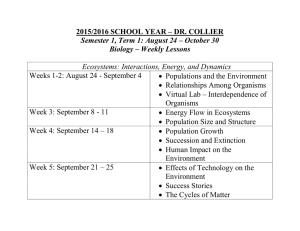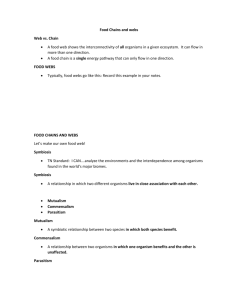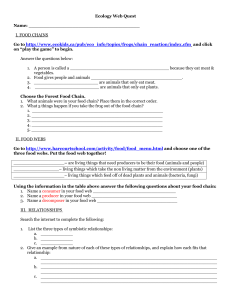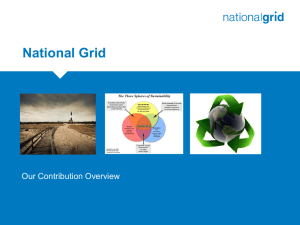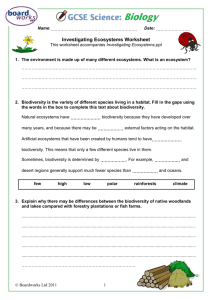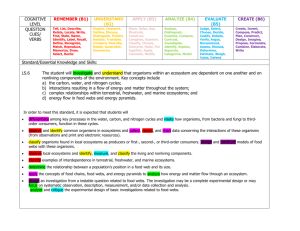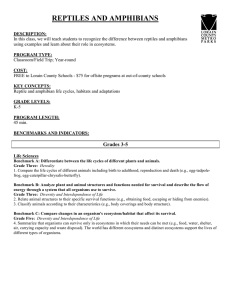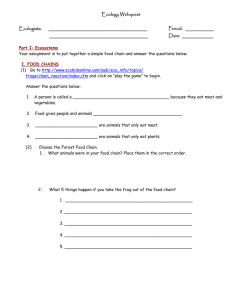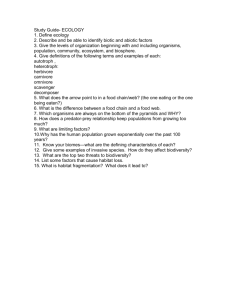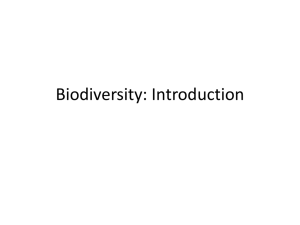TERM 3 Unit 6 YR 9 SCI ECOLOGY AND BIODIVERSITY
advertisement
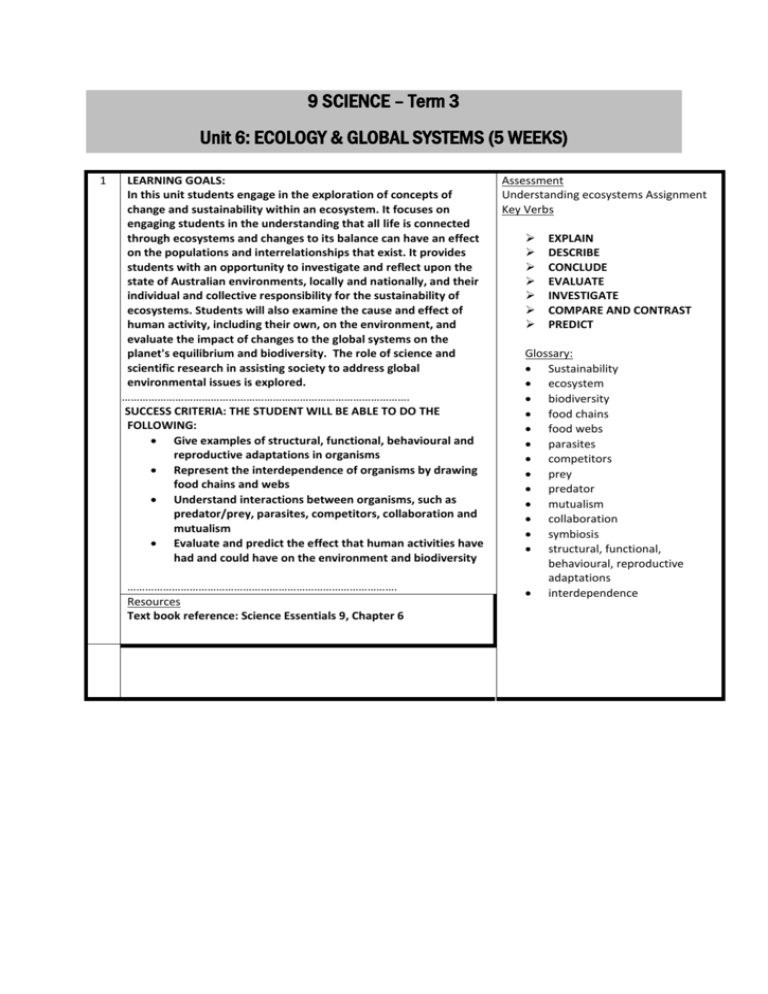
9 SCIENCE – Term 3 Unit 6: ECOLOGY & GLOBAL SYSTEMS (5 WEEKS) 1 LEARNING GOALS: In this unit students engage in the exploration of concepts of change and sustainability within an ecosystem. It focuses on engaging students in the understanding that all life is connected through ecosystems and changes to its balance can have an effect on the populations and interrelationships that exist. It provides students with an opportunity to investigate and reflect upon the state of Australian environments, locally and nationally, and their individual and collective responsibility for the sustainability of ecosystems. Students will also examine the cause and effect of human activity, including their own, on the environment, and evaluate the impact of changes to the global systems on the planet's equilibrium and biodiversity. The role of science and scientific research in assisting society to address global environmental issues is explored. ………………………………………………………………………………………. S SUCCESS CRITERIA: THE STUDENT WILL BE ABLE TO DO THE FOLLOWING: Give examples of structural, functional, behavioural and reproductive adaptations in organisms Represent the interdependence of organisms by drawing food chains and webs Understand interactions between organisms, such as predator/prey, parasites, competitors, collaboration and mutualism Evaluate and predict the effect that human activities have had and could have on the environment and biodiversity ………………………………………………………………………………. Resources Text book reference: Science Essentials 9, Chapter 6 Assessment Understanding ecosystems Assignment Key Verbs EXPLAIN DESCRIBE CONCLUDE EVALUATE INVESTIGATE COMPARE AND CONTRAST PREDICT Glossary: Sustainability ecosystem biodiversity food chains food webs parasites competitors prey predator mutualism collaboration symbiosis structural, functional, behavioural, reproductive adaptations interdependence
